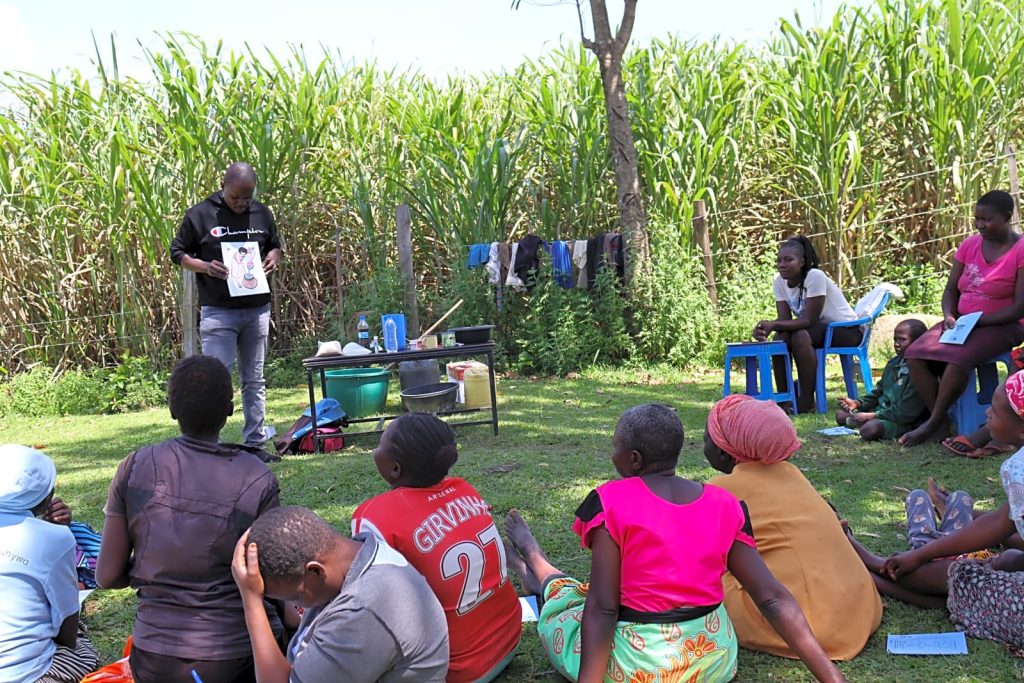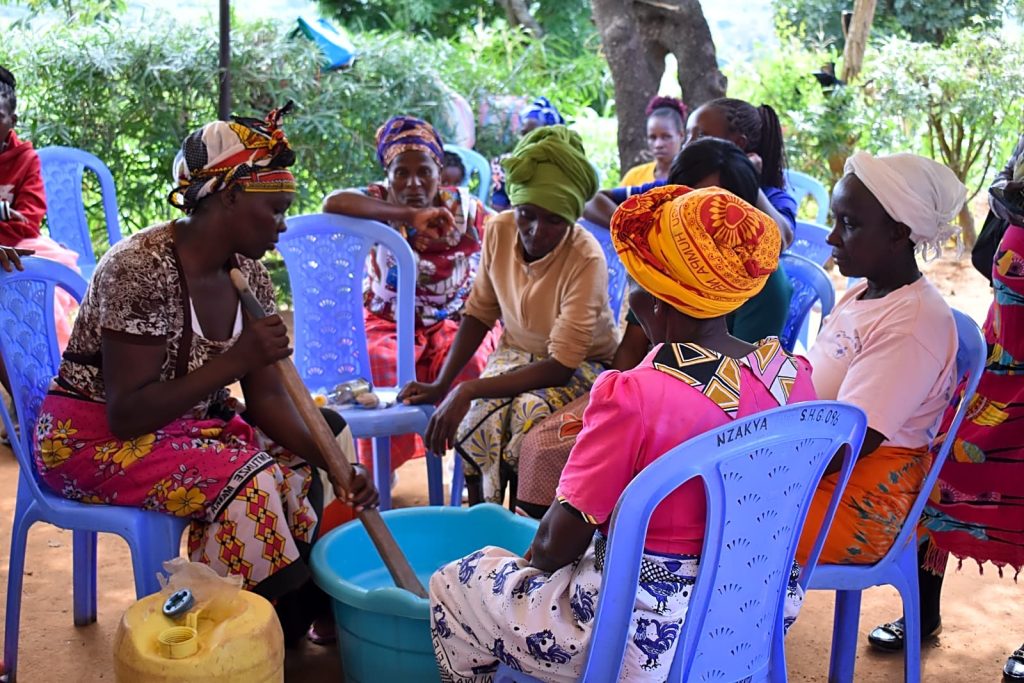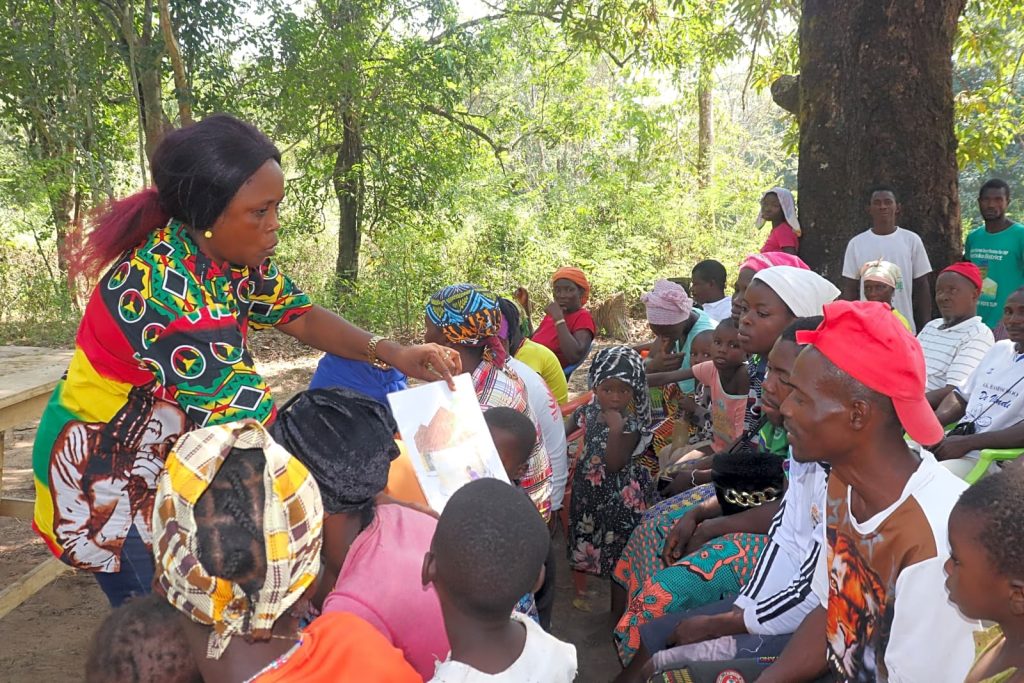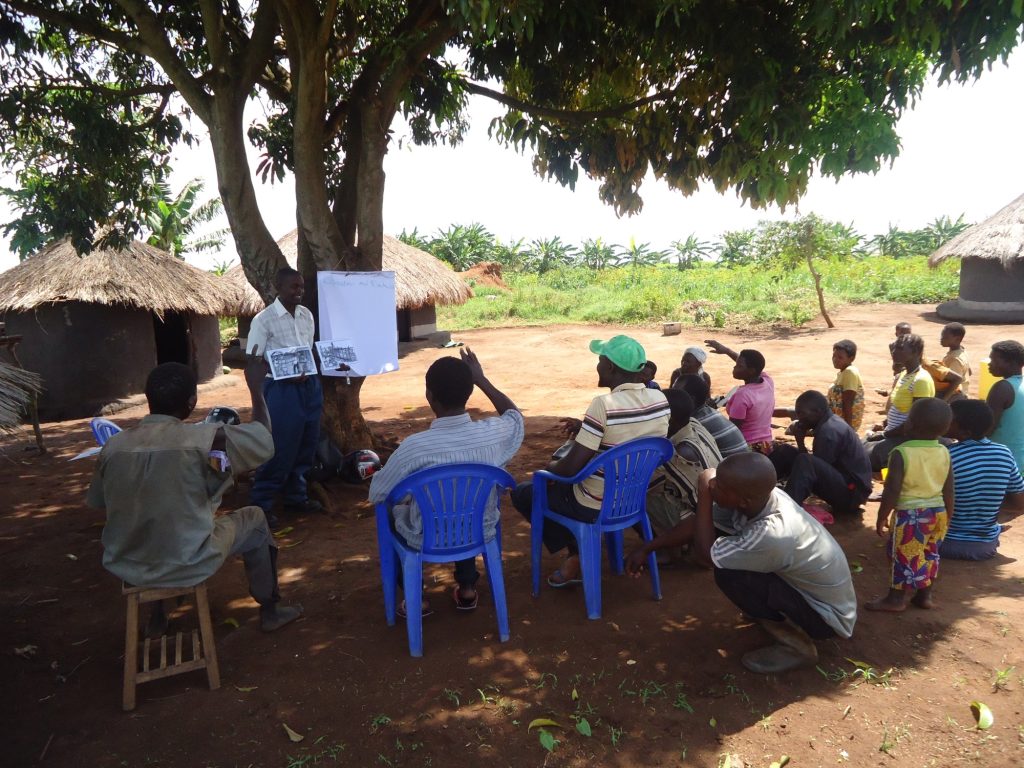What We Train Community Members About in Each of Our Service Areas
Providing clean water is only part of what we do at The Water Project. The other part is spreading knowledge about proper hygiene and sanitation methods to reduce disease.
Most of what we do to maintain a clean and safe environment requires water: handwashing, washing dishes, personal hygiene, etc. When water is scarce or people must walk a long way in order to collect it, these essential tasks become difficult, if not impossible. But gaining a new supply of safe, reliable water is the perfect occasion for community members to learn the importance of keeping themselves and their households clean.
The type of water projects we choose for each work area depends on the community’s needs. In the same vein, our teams choose to cover different hygiene and sanitation topics for each school, community, or health center. Because each population faces different struggles, they each need different knowledge as they advance toward lives free of water-related disease.
Western Kenya
In communities of Western Kenya, we discuss personal, oral, and environmental hygiene, emphasizing proper water handling, soap-making, and the ten steps of handwashing. We also highlight the importance of primary health care and cover the operation and maintenance of the community’s new water point, as well as leadership and governance. By the end of the training, participants should have a clear understanding of their role in maintaining clean water and promoting good health within their community.

Each community also holds an election for a newly formed water user committee, which will oversee the water point’s maintenance. And together we brainstorm income-generating activities, encouraging the community to start a group savings account for future minor repairs to their new water point.
Southeast Kenya
In Southeast Kenya, trainers first work with field staff and community members to determine which topics the community can improve upon. In this region, communities form committees called self-help groups that gather periodically to address their village’s ongoing needs.
We train each self-help group on various skills, including bookkeeping, financial management, project management, group dynamics, and governance.

We also cover health problems in the community, good and bad hygiene habits, and the prevention of disease, and conduct hygiene and sanitation training to teach skills like soap and detergent-making and improve habits such as handwashing. Finally, we train on natural resource management along with the operation and maintenance of the new water point.
Sierra Leone
Before conducting any hygiene training in Sierra Leone, we collaborate with the local water user committee to understand the community’s challenges and lack of sanitation facilities. We identify households without handwashing stations or ones that may need to repair their latrines. With this information, community members work together to improve hygiene and sanitation at home before the training.
We also frequently invite nurses from local clinics to help explain some topics and spread awareness about Sierra Leone’s free vaccinations for children under five. The insights of nurses are often instrumental in reinforcing each health lesson.
We teach the participants about proper handwashing, personal and menstrual hygiene, and healthy habits such as using latrines and maintaining a balanced diet. We discuss how disease transmission and water hygiene are crucial to community health. And we emphasize the importance of maintaining and caring for the new water point and the cost recovery system.

Uganda
Our community training program in Uganda is lengthy and thorough and is paired with the creation of self-help groups to address communities’ ongoing needs.
The first training session focuses on financial planning. We mobilize the community through a series of meetings that emphasize the importance and purpose of saving, a lesson that begins to take root upon the installation of a new water point and the subsequent reduction in water-related diseases. Community members create a community profile, where participants map the physical environment and its stakeholders. We also run what amounts to a cost-benefit analysis where community members map out their shared risks and opportunities, including the possibility of the water point breaking down.
Then, we establish a Village Savings and Loan Association (VSLA) and a water user committee. VSLA members all contribute to two different savings accounts: one to give each other small loans throughout the year, and another to fund maintenance and repairs of the new water point. These micro-loans allow people to start small businesses and manage hard times without having to deal with a bank.
The group also agrees on a social fund that will provide grants to fellow group members and help them with weddings, funeral expenses, or catastrophes such as fire damage. To support the management of the VSLA, our teams provide follow-up trainings and continuous coaching.
We then conduct seminars on hygiene and sanitation at the personal, household, community, and environmental levels. In collaboration with the community facilitator and local leaders, we train households on critical hygiene and sanitation facilities. These include latrines, dish racks, refuse pits, handwashing facilities, and bathing shelters. Our teams monitor these facilities’ construction while helping the community learn how to best use and care for them.

Finally, we lead an additional training for local artisans to teach them how to fabricate and sell locally used and accepted sanitation products, such as soap and cleaning detergent, that allow for more hygienic and accessible latrines.
Support from donors like you empowers community members in sub-Saharan Africa with the new knowledge they need to thrive.
Home More Like ThisTweet